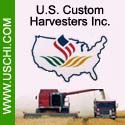 |
 |

|
|
|
New York Ag News Headlines |
 |
Reading the Scales
New York Ag Connection - 10/22/2020
Students in the SUNY Environmental Science and Forestry's Fisheries Science Practicum have been knee deep in water all semester documenting fish populations across the state. Using a variety of techniques and equipment, the "die-hard" students have also witnessed first-hand the effects of climate change on our ecosystem.
"Interacting with our environment and engaging in your work first-hand is the ideal vehicle for illustrating what might otherwise be abstract concepts," said Karin Limburg, SUNY Distinguished Professor. "In this practicum, the objectives extend beyond points you can learn from a book. The practicum is a perfect platform to absorb abstract concepts that are often difficult to internalize sitting in a classroom. For example, we've had to change where we obtain fish for a key project because of the declines in fishes in our Adirondack lakes that appears related to climate change."
Field work this semester took the class to five locations: Onondaga Lake, Meadow Brook, the Hudson River estuary (three sites), two lakes in the Adirondack headwaters of the Hudson, and Oneida Lake.
"This semester has had the added element of COVID-19," said Limburg. "We've all been cognizant of the virus and taken precautions so that we can finish the semester safely. We've become a team, caring for each other, but finishing - face-to-face and hands-on-is important to all of us."
Collecting the samples in the field, students use a variety of gear, including an electrofisher, seine nets, and trap-nets. Lab work will entail the use of dissecting tools and microscopes.
"The students learn to age fish by analyzing their scales and otoliths," said Limburg. "In a process that is similar to that used for aging trees, we count the rings on a fish's scales or their otoliths. In this practicum, we used to collect fish scales during our trip to the Adirondacks. But since those fish have declined in abundance so much, we now use fish collected in nearby Onondaga Lake instead. Though the students see the current picture as they learn the techniques, I, as instructor, have witnessed a lot of environmental change."
|
 |


|
 |
|
Copyright © 2024 - Farms.com. All Rights Reserved. |
 |
|